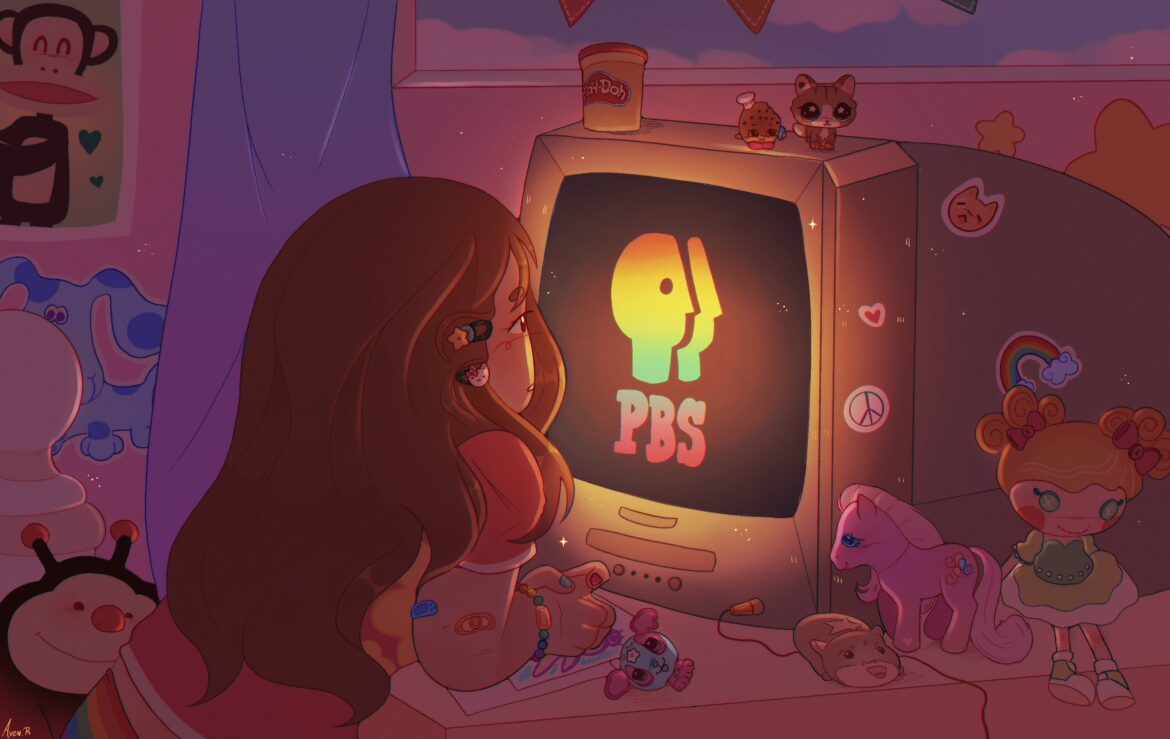The New Jersey station’s closure sets a negative precedent for other smaller stations in the US and public media as a whole.
The PBS station in New Jersey is set to shut down on June 30, 2026, after WNET failed to reach an agreement to keep the public broadcasting company in effect. According to the Philadelphia organization WHYY (an affiliate of PBS and NPR), within “2025 state funding was cut by 75% from $1 million to $250,000 and all federal funding for public media was eliminated earlier this year.” It is yet another blow after a string of public media outlets lost their funding this past summer, including the cuts made to NPR.
With one after another falling like dominoes, I’m left wondering: is this an infringement on freedom of speech? The First Amendment grants its people the right to free speech, but PBS’s loss not only threatens the company’s future but the future of our civil rights.
PBS has been around for 55 years, with its New Jersey station established in 2011—that is 55 years of entertaining and informing people across the country. PBS was my favorite channel on television when I was a little girl. My imagination came alive with Sesame Street and I learned new things everyday on Sid the Science Kid. Those were just one of the many programs that shaped my childhood, as it did countless others.
Not only does PBS appeal to children, but it also brings people access to history, art and science. I was having a talk with my friend, who is a self-proclaimed PBS enthusiast and she mentioned that she’d never known the strong foothold slavery had in NJ until she watched PBS. With all these educational programs, PBS is probably one of the few unbiased sources in this country. It is not leaning toward the left, right, or middle, but just towards the facts.
It is also a excellent informative channel for people who live in rural areas or those who don’t have easy access to a library. Not to mention, public funding to these stations also supports emergency alerts, a crucial resource for said rural areas that may not have coherent communication systems, according to an NPR article.
The government is censoring a team of creatives and professionals who use their platform to enlighten and educate Americans simply because they disagree with them. To quote PBS News, “The White House, in a social media posting announcing the signing (executive order to cut funding), said the outlets receive millions from taxpayers to spread radical, woke propaganda disguised as ‘news.’” Ironically, PBS is exactly the kind of channel that would accurately point out, define and educate on what real “propaganda” is.
In just the past year, the US government has made disappointing and, quite frankly, shocking decisions that have instilled unease in many people, including myself. Book banning has taken a sharp increase, particularly in Florida and Texas. If we look back at history, book banning and book burning were tools used by fascist regimes to prevent free speech.
The Trump administration has discouraged free speech at universities, cracking down on Harvard and Columbia for pro-Palestinian protests as a warning for other institutions in the nation according to US News. Workers have been fired and university students have been arrested for exercising their fundamental right to express their opinions.
Jersey City Mayor Steven Fulop argues that the PBS station is not just one station shutting down, but “‘…a warning about who holds power when oversight fades. Without free public media, we lose the lens that keeps those in power honest.” For nearly six decades, PBS has sought to inform and amuse its viewers by mixing entertainment with education. It is free of cost and accessible to everyone. New Jersey’s upcoming PBS closure sets a negative precedent for other smaller stations in the US and public media as a whole.
We must keep advocating for free media as an extension of free speech. By supporting small media outlets and donating to public media companies, including our own New Jersey PBS station, we have a chance to preserve free speech before more media forms are written off as irrelevant and unimportant as a way to eradicate them.
Let’s not forget the nationalist government’s M.O. — limit or downright prevent real facts from reaching its citizens. The less you know, the more the government can control.



